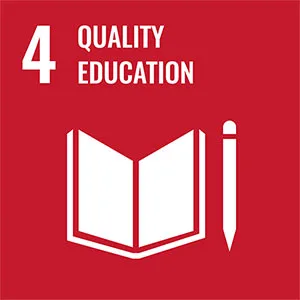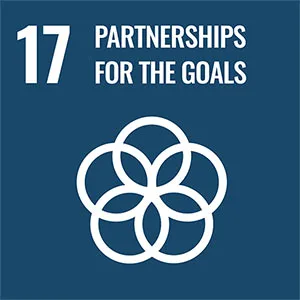MSc Mathematics
The joint master's programme in Mathematics is hosted by world-leading experts and research groups at KTH and Stockholm University. Students specialise in their desired areas of mathematics while acquiring essential skills in problem-solving and logical reasoning. Graduates become industrial mathematicians, often data analysts, financial analysts or within software engineering, or go on to PhD studies at prominent institutions.
Mathematics at KTH
The courses in the programme are organised into three blocks: basic, profile and broadening. The basic block provides in-depth education at an advanced level. Within this block, it is mandatory to take one course in each of the following areas: algebra and geometry, analysis, topology, and discrete mathematics. In the profile block, courses are chosen freely to specialise and prepare for the master's degree project – the subject is regarded in a broad sense, and includes mathematical physics, logic, mathematical statistics, optimisation theory and theoretical computer science. The broadening block contains courses on theory and methodology of science, communication of mathematical subjects and a half semester of freely elective courses.
The partnership with SU makes this programme unique and allows to offer courses covering a broad selection of topics within mathematics.
Degree project
The degree project will typically be carried out within the specialisation chosen, either with a research group at KTH or SU or externally at a company. The results are presented in a written thesis and in a seminar.
This is a two year programme (120 ECTS credits) given in English. Graduates are awarded the degree of Master of Science. The programme is given mainly at KTH Campus in Stockholm by the School of Engineering Sciences (at KTH) and at the Stockholm University campus.
Courses in the programme
The courses in the programme cover topics such as algebra, analysis, discrete mathematics, geometry, mathematical physics, topology.
Future and career
Mathematics is becoming increasingly important in society, and one key function of this programme is to educate tomorrow’s leaders in industry, academia and society. Problem-solving and logical reasoning are key qualities that employers look for, and training these abilities lies at the heart of our programme. In the basic block, you will take your general skills to an advanced level by studying core subjects in mathematics. More specialised or interdisciplinary areas of expertise can be studied in our profile and broadening blocks, giving you the necessary means to prepare for the job market or a continued academic career. The job prospects are outstanding, and most students find good jobs shortly after graduating or continue with a PhD. Many find jobs as a data analyst, financial analyst and within software engineering at a variety of attractive companies.
The Stockholm mathematical community consists of world leading experts and research groups in different areas. Students will have the opportunity to interact closely with these researchers, providing a platform to those who consider continuing to a doctoral degree at KTH, SU or another internationally renowned institution. Several of our students pursue doctoral studies after graduating.
Sustainable development
Graduates from KTH have the knowledge and tools for moving society in a more sustainable direction, as sustainable development is an integral part of all programmes. The three key sustainable development goals addressed by the master's programme in Mathematics are:



SDG 9, Industry, Innovation and Infrastructure: Studying mathematics is excellent preparation for dealing with a variety of complex systems that feature in research environments, industries or where these two meet. Abstraction is an essential tool for understanding and solving complex problems, and it can lead to unexpected and innovative ideas. As a consequence of the general training provided in our core courses and the more specialised training in the profile block, you will develop a broad palette of skills and creativity needed to tackle modern challenges.
SDG 4, Quality Education: A poorly presented solution to a problem is no solution at all. Mathematicians have pride in maintaining a high standard in the presentation of their arguments. Through multiple homework assignments and presentations, we emphasise how to present your solutions in an understandable way, in writing and speech. You will develop your skills in effectively communicating your results to fellow experts, as well as educating future generations.
SDG 17, Partnerships for the Goals: Mathematical breakthroughs are rarely made by mathematicians on their own but are typically the result of close and intense interactions within a mathematical community. Through homework assignments and group work, you will quickly find that you will learn more and achieve a higher level of understanding through interaction with your peers. Even the programme itself is a partnership, and our combined efforts and differences allow us to deliver a diverse and high-quality programme.
Faculty and research
Mathematical research has a long-standing tradition in Stockholm ever since the days of Gösta Mittag-Leffler. Today the Stockholm area has developed into an important international hub for scientific work in mathematics. The combined research efforts in Stockholm attract a large proportion of the available research funding within Sweden, giving the means to maintain a wide range of research groups consisting of faculty, postdocs and doctoral students. On top of that, the nearby Institut Mittag-Leffler hosts numerous visiting scientists throughout the year, further contributing to the unique mathematical research environment in Stockholm.
At KTH we have strong research groups in the following areas:
- Algebraic Geometry and Commutative Algebra
- Algebraic Topology
- Algorithms and Complexity
- Combinatorics
- Complex and Harmonic Analysis
- Differential Geometry & General Relativity
- Dynamical Systems
- Mathematics for Data Science
- Number Theory
- Partial Differential Equations
- Probability (random matrix theory, statistical physics)
As a student in the master's programme in Mathematics, you will meet our researchers in and around classes, and participate in the research activities of these groups in your degree project.



